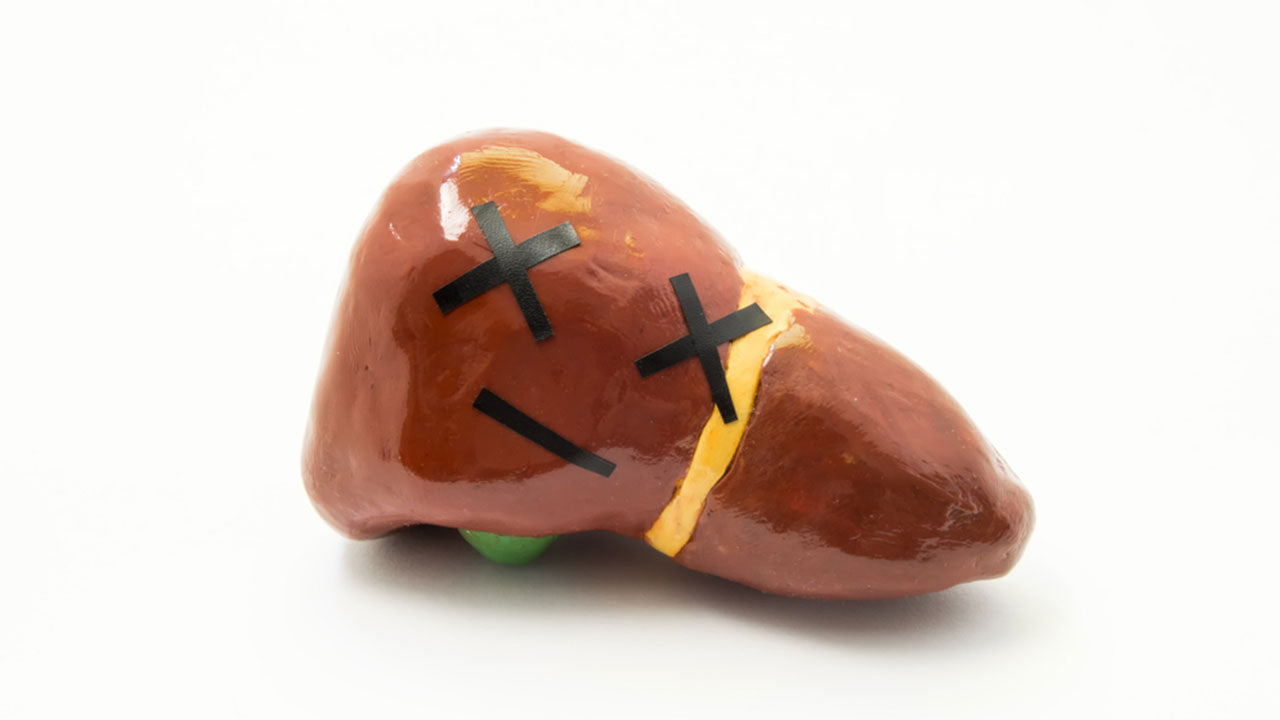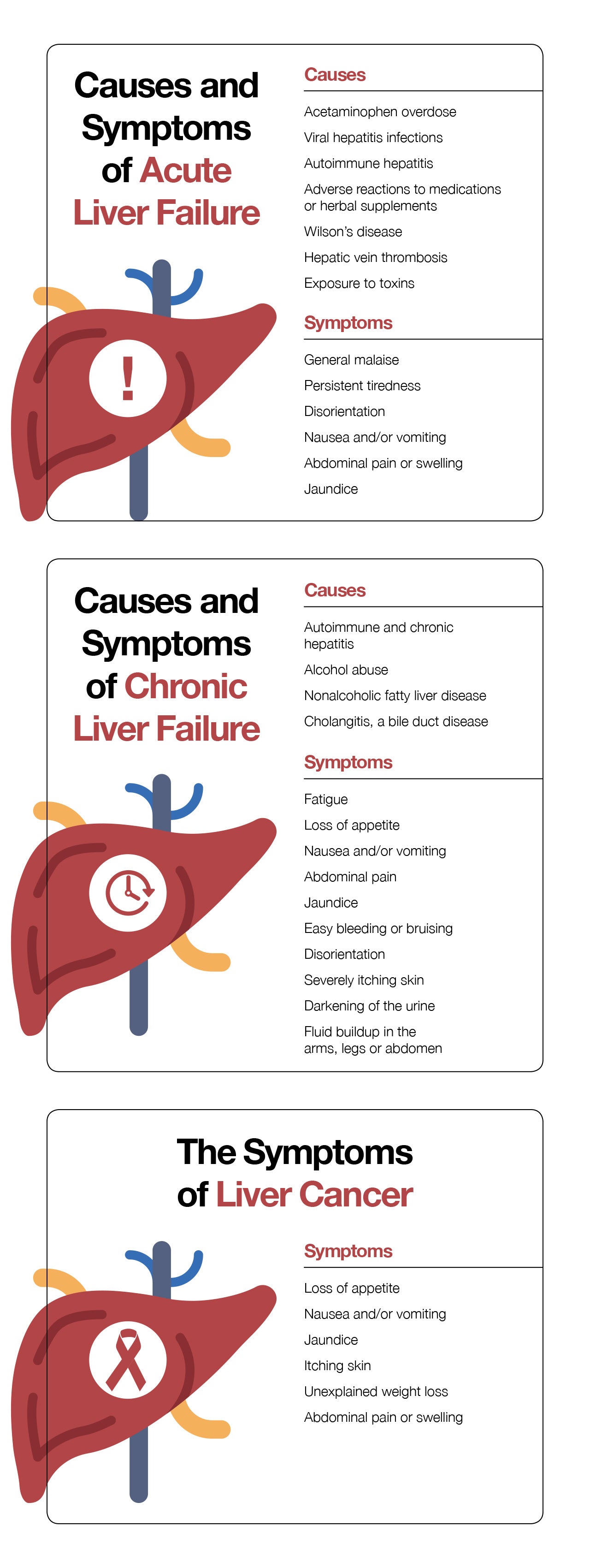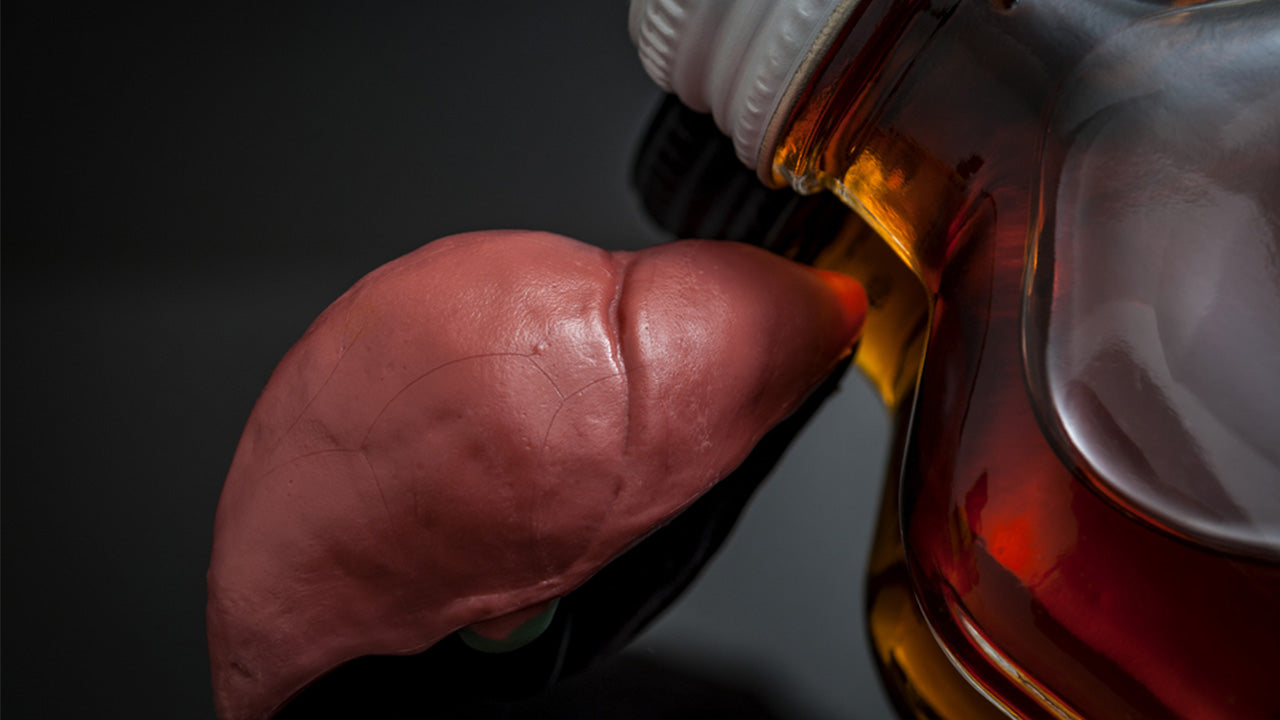Liver Failure Death: Causes, Symptoms and Stages
 By: by Amino Science
By: by Amino Science

The human liver is one of our most vital organs, responsible for filtering our blood and detoxifying our bodies. Without a functioning liver, we first become jaundiced, and after a certain point, we can no longer stay alive without liver transplantation. Any issue with liver function is a life-threatening healthcare emergency. So come with us as we explore the leading causes of liver damage and the progressive stages of liver failure death.
What Causes Liver Failure Death?
Cirrhosis is late-stage scarring of the liver (fibrosis). According to those who study hepatology, the most common causes of cirrhosis in the United States are due to hepatitis C infections and heavy alcohol consumption. These chronic liver diseases not only affect one's quality of life, but can also lead to the end of life.
However, there are other causes of acute liver failure that have a much faster onset, such as drug or toxin overdoses. Genetics are also among the risk factors that can contribute to liver damage and disease, as are obesity, autoimmune disorders, and various forms of cancer.

Causes and Symptoms of Acute Liver Failure
Acute liver failure is a rapid decline of liver function caused by:
- Acetaminophen (Tylenol) overdose
- Viral hepatitis infections (hepatitis A, B, and E)
- Autoimmune hepatitis
- Adverse reactions to medications for epilepsy, antibiotics, or even nonsteroidal anti-inflammatory drugs (NSAIDs)
- Adverse reactions to herbal supplements like kava (a nightshade plant) or ma huang (ephedra)
- Wilson's disease (a rare genetic disorder that causes copper buildup and poisoning)
- Hepatic vein thrombosis (also known as Budd-Chiari syndrome)
- Exposure to toxins like poisonous mushrooms or industrial chemicals
The symptoms of acute liver failure include:
- General malaise or a feeling of unwellness
- Persistent tiredness, drowsiness, or sleepiness
- Confusion or disorientation
- Nausea and/or vomiting
- Abdominal pain or swelling
- Jaundice (a yellowing of the eyes or skin)
Causes and Symptoms of Chronic Liver Failure
Chronic liver failure is characterized by long-term progressive damage from the following causes:
- Autoimmune or chronic hepatitis B or C
- Long-term alcohol abuse
- Nonalcoholic fatty liver disease
- Cholangitis (a bile duct disease)
The symptoms of chronic liver failure and breakdown could entail:
- Persistent fatigue
- Loss of appetite
- Nausea and/or vomiting
- Abdominal pain or discomfort
- Jaundice of the eyes or skin
- Easy bleeding or bruising
- Disorientation or confusion
- Severely itchy skin
- Darkening of the urine
- Fluid buildup in the arms or legs (edema)
- Fluid buildup in the abdomen (ascites)
The Symptoms of Liver Cancer
Cancer that develops in the liver (referred to as primary liver cancer) could also be the cause of liver failure. Those with cirrhosis (the third stage of liver failure) are more at risk of developing liver cancer, which could then shut down the organ or spread to the rest of the body. Liver cancer symptoms could include:
- Loss of appetite
- Nausea and/or vomiting
- Jaundice
- Itchy skin
- Unexplained weight loss
- Abdominal pain or swelling
The Stages of Liver Failure
Liver failure and liver disease are two different things, but one of them can cause the other. Liver disease encompasses any ongoing condition that damages the liver, including inflammation and infection. Liver failure occurs when the liver loses a portion or the entirety of its functionality.
Damage to the liver can come in stages, creating a systematic shutdown of the body and requiring end of life care from health care professionals. What follows are the details of those various stages.
1. Inflammation of the Liver
Inflammation of the liver is often the beginning of the damage that can ultimately lead to a person's death. Not everyone will notice or feel when their liver becomes inflamed or enlarged, and if the inflammation continues unabated, permanent injury or scarring could occur, leading to the next stage of liver failure.
2. Fibrosis of the Liver
Fibrosis is liver scarring. While the liver is one of the most unique organs thanks to its ability to heal itself (unlike the heart muscle), long-term damage from repeated intoxication or uncured or incurable infections can still build up. When scar tissue begins to take the place of healthy and functional liver tissue, it diminishes the liver's ability to function. Again, this progressive damage is not always detectable, and the longer it persists, the more it affects the individual's survival rate.
3. Cirrhosis of the Liver
Cirrhosis is characterized by severe scarring of the liver. When the damaged tissue accumulates enough to interrupt liver functioning, it puts your health in serious jeopardy. When scarring starts to outnumber and overwhelm healthy tissue, the liver begins to fail. Sometimes this stage is the first one that presents symptoms noticeable by the individual, including jaundice, dry mouth, muscle cramps, increased ease of bleeding, buildup of fluid in the abdomen (ascites), peripheral edema, and reduced brain functioning (hepatic encephalopathy).
4. End-Stage Liver Disease
Those with end-stage or advanced liver disease require palliative care and may be placed on a waiting list for a liver transplant by their health care provider depending on their MELD score (model for end-stage liver disease). This score was established to evaluate the short-term (90-day) survival rate of people with advanced liver damage, and it is determined by a series of blood tests. The MELD score ranges from 6 to 40, with 6 being the best change of survival.

Diagnosis of Liver Failure
Doctors may use several tools and methods to diagnosis and evaluate the severity of acute liver failure, including the following.
- Blood tests: These tests include liver blood tests for enzymes that indicate liver functionality, CBC tests (complete blood count), or other blood tests to look for issues like viral hepatitis infection or undiagnosed genetic conditions.
- Imaging tests: An MRI, ultrasound, or CT scan may be used to visually inspect the liver.
- Biopsy: A tissue sample may be taken from the liver to investigate for scarring or other signs of disease and infection.
Liver Failure Treatment Options
First of all, in cases of acute liver failure, the patient will need to be hospitalized, and possibly in the intensive care unit to be given round-the-clock support as medical staff attempts to stabilize and treat their condition. Depending on the cause of the liver failure, a person may either recover or require a liver transplant.
For liver failure resulting from a chronic condition, often the first step is addressing the cause. If it's drugs or alcohol, rehab needs to be part of the protocol. If it's due to a viral hepatitis infection, then treatment will follow accordingly. For those with autoimmune conditions, certain therapies may be suggested by the medical team depending on the effects of the condition. If liver failure is a matter of lifestyle causes (poor diet or overuse of medications), then those behaviors would have to be addressed as part of a comprehensive treatment.
The American Liver Foundation says that liver failure can actually be reversed if it's caught at the second (fibrosis) stage. For the third or cirrhosis stage, while the damage may not be reversed, it can be slowed, stopped, or treated so that the person may continue to live healthily.
For those with end-stage liver failure, however, if a liver transplant cannot be performed, the only follow-up may be end-of-life care.
How to Prevent Liver Failure Death
Given how important liver health is to human survival, taking care of your liver and your overall health is the best way to prevent sometimes permanent and deadly liver damage. Some ways to protect your liver include:
- Abstaining from alcohol or only drinking in moderation
- Never mixing medications with other drugs or supplements without a doctor's consent
- Taking an essential amino acid supplement to help prevent the accumulation of fat in the liver
- Never mixing medications with alcohol
- Taking over-the-counter medications only when needed
- Taking prescribed medications only as directed and to completion
- Maintaining a healthy weight
- Aiding liver detox with your dietary choices
- Getting vaccinated against hepatitis A and B
Liver Long and Prosper
If you suspect there is anything wrong with your liver, seek medical advice immediately. The sooner you intervene on behalf of your liver's health, the better chance you have at being able to reverse the damage done and heal completely. In many cases liver failure death can be prevented, if it's caught in time and if you follow your doctor's advice. Eat well, detox regularly, and you may well live long and prosper.

Up to 25% off Amino
Shop NowTAGS: conditions liver
Join the Community
Comments (0)
Most Craveable Recipes




 833-264-6620
833-264-6620



















